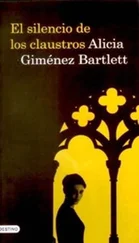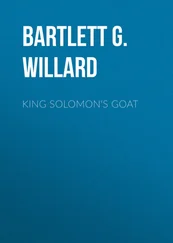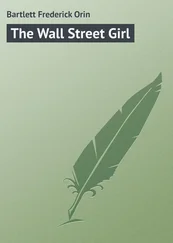David Bartlett - Presidential Candidates:
Здесь есть возможность читать онлайн «David Bartlett - Presidential Candidates:» — ознакомительный отрывок электронной книги совершенно бесплатно, а после прочтения отрывка купить полную версию. В некоторых случаях можно слушать аудио, скачать через торрент в формате fb2 и присутствует краткое содержание. ISBN: , Жанр: foreign_antique, foreign_prose, на английском языке. Описание произведения, (предисловие) а так же отзывы посетителей доступны на портале библиотеки ЛибКат.
- Название:Presidential Candidates:
- Автор:
- Жанр:
- Год:неизвестен
- ISBN:http://www.gutenberg.org/ebooks/35400
- Рейтинг книги:4 / 5. Голосов: 1
-
Избранное:Добавить в избранное
- Отзывы:
-
Ваша оценка:
- 80
- 1
- 2
- 3
- 4
- 5
Presidential Candidates:: краткое содержание, описание и аннотация
Предлагаем к чтению аннотацию, описание, краткое содержание или предисловие (зависит от того, что написал сам автор книги «Presidential Candidates:»). Если вы не нашли необходимую информацию о книге — напишите в комментариях, мы постараемся отыскать её.
Presidential Candidates: — читать онлайн ознакомительный отрывок
Ниже представлен текст книги, разбитый по страницам. Система сохранения места последней прочитанной страницы, позволяет с удобством читать онлайн бесплатно книгу «Presidential Candidates:», без необходимости каждый раз заново искать на чём Вы остановились. Поставьте закладку, и сможете в любой момент перейти на страницу, на которой закончили чтение.
Интервал:
Закладка:
Mr. Seward went on with a few words, when Mr. Fitch appealed to the Chair to put the question of order to the Senate, with a view of stopping what threatened to be an interminable discussion.
The Vice-President refused to do so.
Mr. Seward went on, saying: "It is in the Thirty-fifth Congress that the homestead bill has been put aside." He then contrasted the merits of the two bills.
Mr. Toombs said, as to "land for the landless," it carried with it some demagogical power. He despised a demagogue, but despised still more those who are driven by demagogues. What are the other side afraid of? If they do not want to give $30,000,000 to carry out a great national policy, let them say so and not attempt to get rid of the issue by saying, "We want to give land to the landless."
Mr. Wade said the question was land to the landless, or niggers to the niggerless. He would antagonize these issues, and carry the appeal to the country. The whole object of the Democratic party was to go round the world hunting for niggers. They could no more sustain their party without niggers, than they could a steam engine without fuel.
Mr. Fessenden took Mr. Toombs to task, and asked if the language he had used was not in imitation of the great man at the other end of the Avenue (the President), who recently addressed an out-of-door crowd, saying none but cowards shirk this Cuban bill. He told the senator the Republicans did not tremble nor shrink. He referred to the trial of physical endurance at the last session, and hinted that they could endure as much again. He denied that the Republicans were obstructing legitimate business, but said they were opposed to this Cuban measure, by which nothing was intended but a party result.
Mr. Seward was not in the habit of impugning the courage of any man. He believed every senator had sufficient. He himself had enough for his own purposes. But other qualities are also necessary. There is moral courage. There is truthfulness to pledges. The President had power to carry out his pledges, and has he done so? Where is the Pacific Railroad bill? where his protection? where relief to the bankrupt? Lost, sunk, sacrificed, in his attempt to fasten slavery on the Spanish American States. No part of the President's policy has been carried out, but it is all sacrificed to a false and pretended issue. Out of nothing, nothing is expected to come. He (Mr. Seward) had never mistaken the President's policy. He never mistook it for a giant in arms, but for a windmill with sails. Mr. Seward concluded by an energetic declaration that he is to be found on the side of liberty, everywhere and always.
Mr. Toombs replied at some length, till Mr. Johnson, of Arkansas, again raised a question of order, to cut off debate.
At eleven o'clock there was a crowded audience; half the senators were in their seats, while the rest were reading and smoking in the ante-room.
Mr. Doolittle finally declined to withdraw his motion.
At midnight, Mr. Chandler attempted to reply to the remarks of Mr. Toombs respecting demagogues.
The Vice-President ruled that he was not in order.
Mr. Fessenden appealed from the ruling of the Chair.
Mr. Mason again moved to adjourn. Lost by 20 to 30.
The appeal of Mr. Fessenden was then laid on the table.
Mr. Clark then spoke; after which Mr. Doolittle's motion to take up the homestead bill was voted on, and lost, by yeas 17, nays 28.
At last, wearied out, and convinced that the Republicans were not to be intimidated or driven into a vote upon the bill without more discussion, Mr. Slidell, himself, moved an adjournment, at one o'clock at night, which was of course carried.
STEPHEN A. DOUGLAS
Stephen Arnold Douglas was born in the town of Brandon, Vermont, on the 23d of April, 1813. His father, S. A. Douglas, was a doctor and native of Rensselaer County, New York. The father removed to Vermont in early life, and was educated at Middlebury College. He was a physician of some eminence. He died suddenly in 1813, leaving two children – a daughter, twenty months old, and a son (the subject of this sketch) only two months of age. The mother of Mr. Douglas, was the daughter of a large farmer in Brandon, Vermont. Upon the death of her husband, she went back to the old homestead which she inherited with a bachelor brother. The brother and sister lived for many years on this retired farm in one of the valleys of the Green Mountains, caring for the two children with economy, prudence and the most ardent affection. The farm-property increased in value, and the sister and mother had no doubt that she could leave her children a comfortable competence, enough to educate them and help them to an independence in after life. After fourteen years had elapsed, the uncle visited the State of New York, and very singularly took the idea into his head of marriage, and returned with a young and handsome wife, who, at the end of a year, presented him with a son. Stephen was at this time fifteen years old, and had received a good common-school education, and he began at once to prepare for college. His uncle was applied to, who by this time began to grow selfish, and desired to keep his property for his own son , and he very frankly informed the young man, that he did not possess property sufficient to warrant him in getting a collegiate education, and he advised him to stay at work upon the farm. The farm and all the property attached to it was held in his uncle's name, was legally his, and his mother only possessed a few worn-out acres, barely sufficient to support her and her daughter. Until the marriage of her brother, she had not dreamed of such a contingency and had relied upon their joint property for her children, who had been great favorites with the bachelor, who had frequently promised them all he had. In this change of circumstances, young Stephen did not long hesitate what to do, but apprenticed himself to a cabinet-maker in Middlebury. He remained here for some eight months, working hard, but, at the expiration of that time, he came to some misunderstanding with his employer, and left him. He came back to his native town and entered the cabinet-shop of one Deacon Knowlton, where he remained a year, making French bedsteads of hard, curled maple, which was so severe labor as to injure his health. He was now obliged to leave his employer, and, while waiting to regain his health, he became a student in the Brandon Academy. At the end of another year, he gave up all hopes of being able to prosecute the cabinet business, and determined on trying to get an education. His sister had married Julius N. Granger, and moved to Ontario County, New York. His mother, a little later, married her daughter's husband's father, Gehazi Granger, and Stephen accompanied her, joining the Canandaigua Academy, where he pursued the classical course till the spring of 1833. At the same time, he was also studying law in the village with the Messrs. Hubbell. He was at this time, though young, an ardent politician, and gave abundant evidence that politics would, in after-life, be his chosen field for action. In the spring of 1833, he turned his face westward, and entered the law-office of S. T. Andrews, then a member of Congress. He was here attacked with a bilious fever, and was ill an entire summer, which threw him out of his place and used up his small stock of funds. When he finally recovered, he was without place and money, and in a situation which would completely dishearten most young men. He started on westward, and seeing no good opening, and being reduced to great straits, engaged to teach a school in the village of Winchester, Illinois. When he came there, he had but thirty-seven and a half cents in his pocket , but by a fortunate occurrence he was enabled to earn a few dollars as clerk before his school opened. The first Monday in December, 1833, he opened his school of forty scholars, at a tuition of three dollars each. He studied law evenings, and, in the course of the following spring, opened a law-office in the place, having obtained a license upon examination from the Supreme Court judges. He sprang at once into the full tide of success, for in less than a year he was elected State's Attorney by the joint vote of the Legislature? He was but twenty-two years of age, yet, by the very nature of his office, he was pitted against the ablest and most acute lawyers in the State. Nothing but the most untiring industry held him up in this position. He endeavored to make up for his lack of experience by the closest study and application, and he very naturally exerted himself to the extent of all his abilities. The result was that he attained distinguished success. In December, 1836, he was elected to the Legislature of his State, and resigned the office of State's Attorney to sit in the Legislature. He was the youngest member of the House, yet he soon created for himself an excellent reputation as a legislator. The State was then going mad with speculation and wild-cat banking. Mr. Douglas opposed the banking institutions – their increase in any shape or manner – but was overborne by numbers. The majority were in favor of extending the then vicious system of banking, and so voted. The very same year, all the banks suspended specie payments, their paper depreciated to a frightful extent, and after a few years they were wound up. Mr. Douglas participated in the great struggle over internal improvements, giving his voice and vote in favor of any plan of public works which would stand the test of an examination. No public man could go through this ordeal without making enemies, for there were rival routes for canals, rival interests, and Mr. Douglas was too outspoken and independent not to take sides upon these local questions. Of course, he made temporary enemies. The railroad mania now began, and Mr. Douglas favored a plan which put the public works completely in the power of the State. The other plan was to join the State with individual stockholders, but really give the control of the works to the private stockholders. In all these local quarrels Mr. Douglas participated with the enthusiasm and energy which have always been characteristic of the man.
Читать дальшеИнтервал:
Закладка:
Похожие книги на «Presidential Candidates:»
Представляем Вашему вниманию похожие книги на «Presidential Candidates:» списком для выбора. Мы отобрали схожую по названию и смыслу литературу в надежде предоставить читателям больше вариантов отыскать новые, интересные, ещё непрочитанные произведения.
Обсуждение, отзывы о книге «Presidential Candidates:» и просто собственные мнения читателей. Оставьте ваши комментарии, напишите, что Вы думаете о произведении, его смысле или главных героях. Укажите что конкретно понравилось, а что нет, и почему Вы так считаете.










